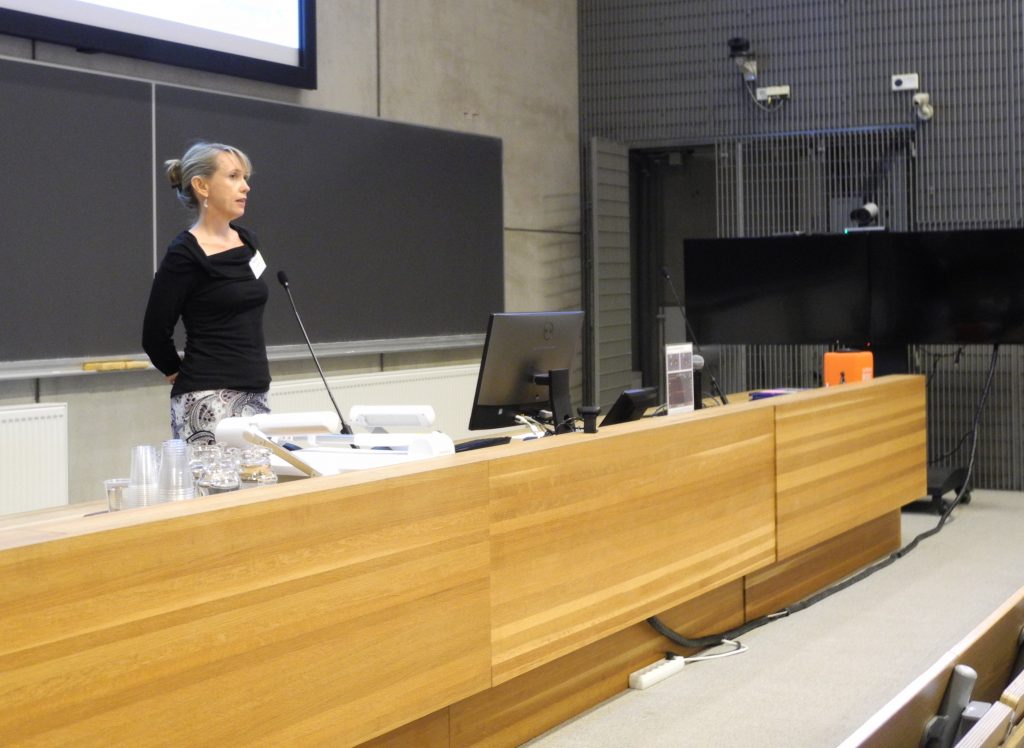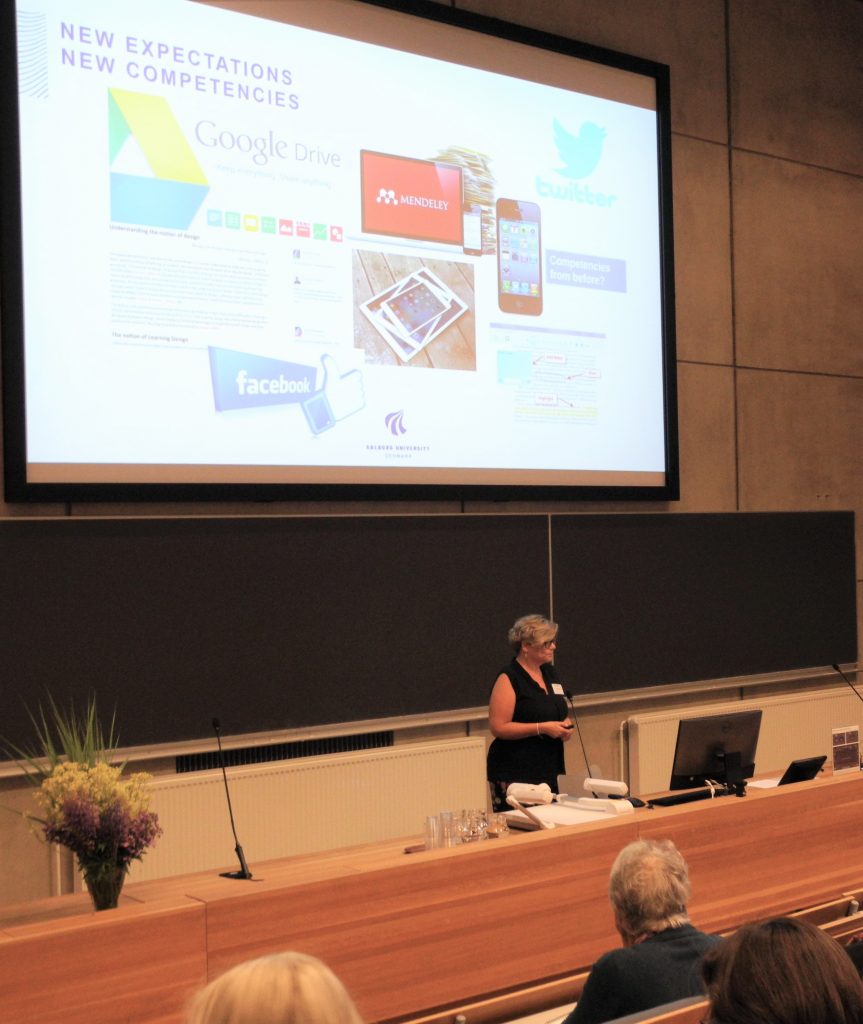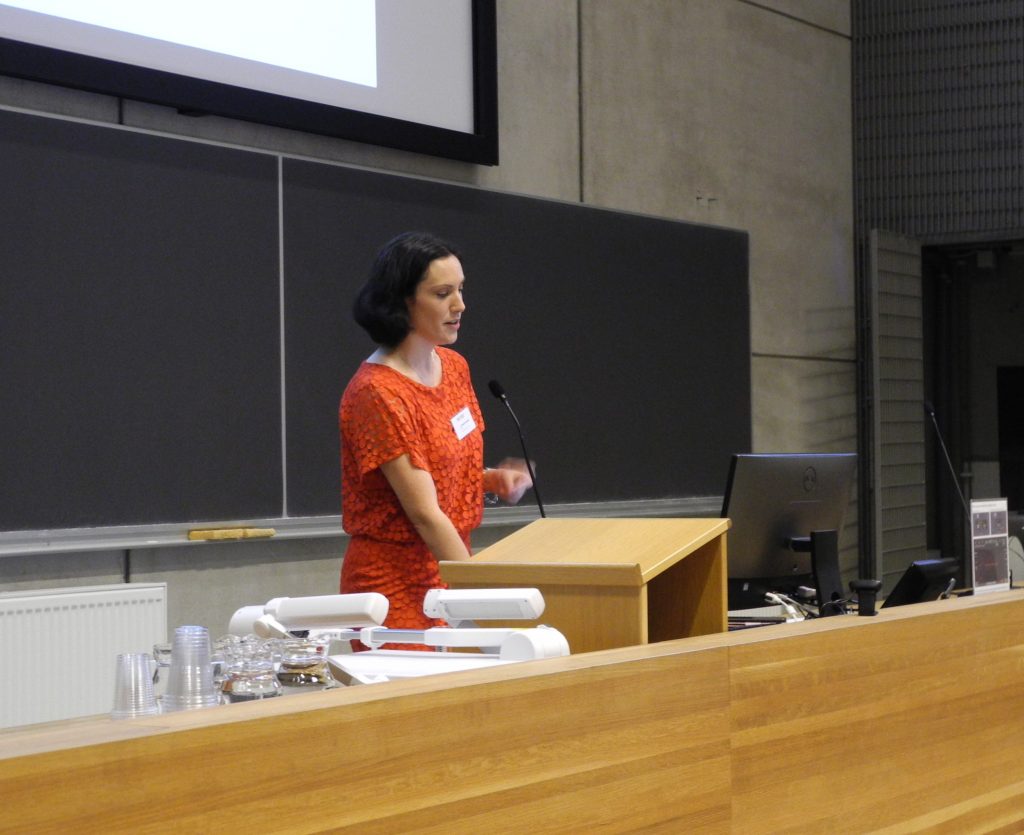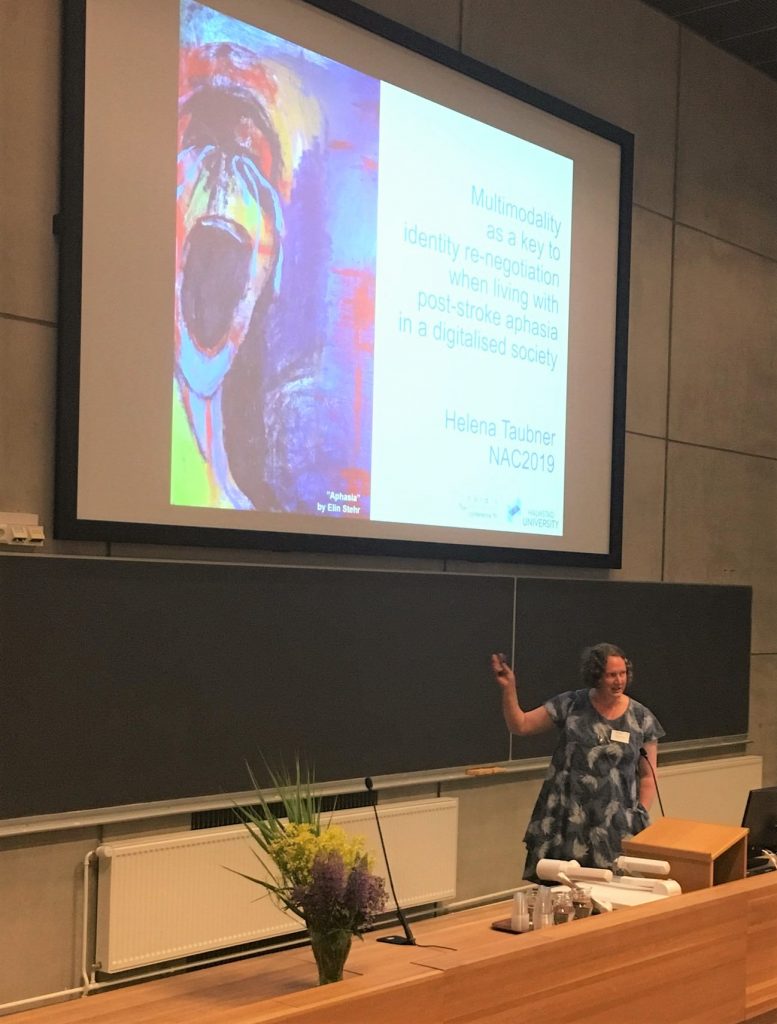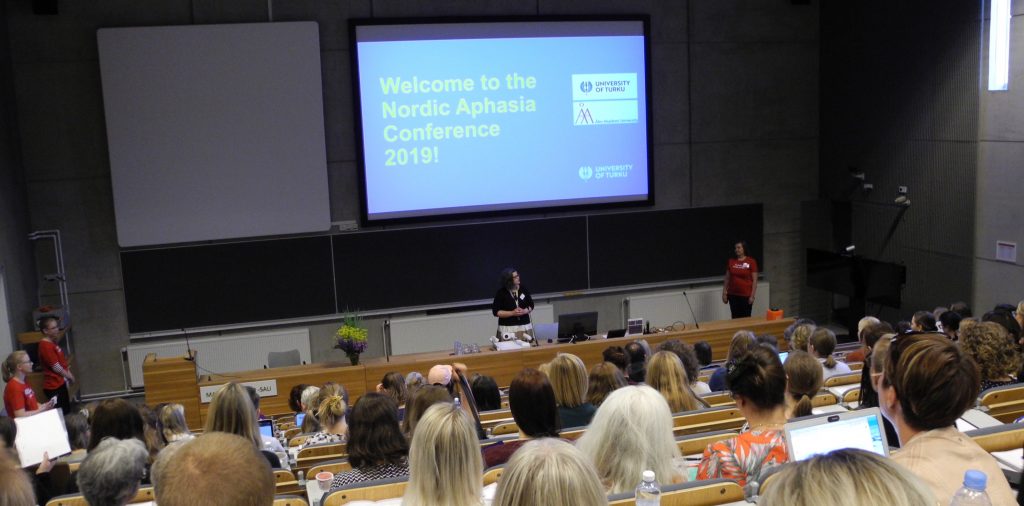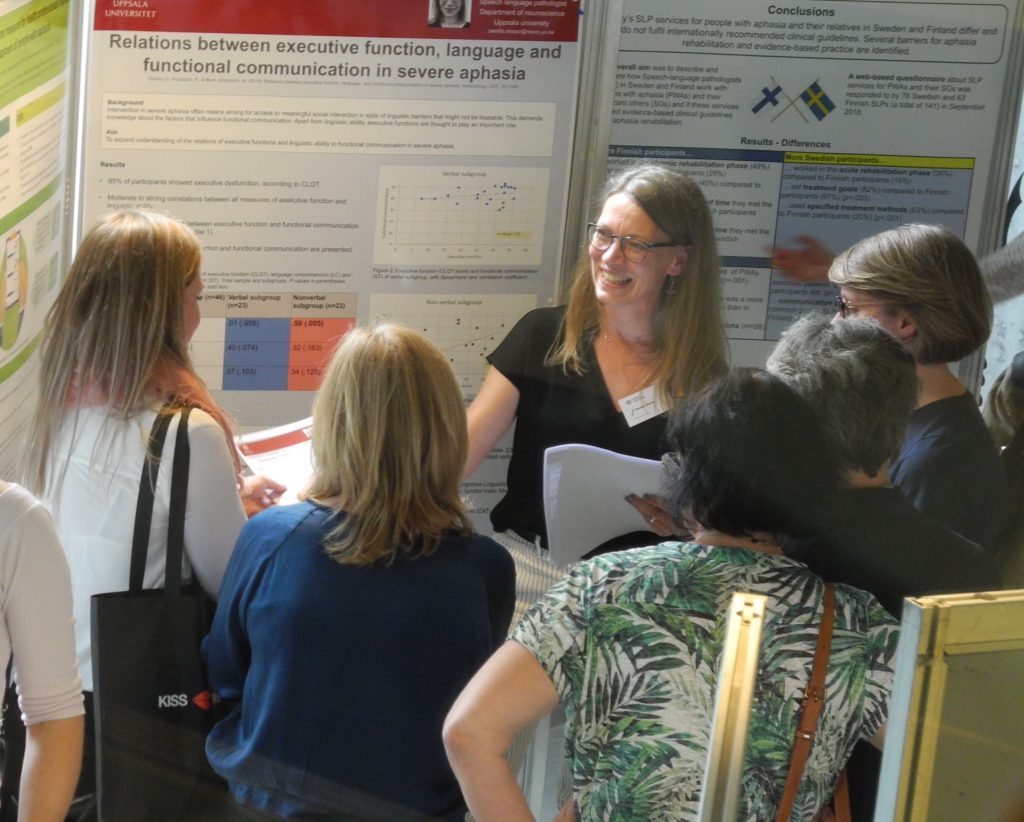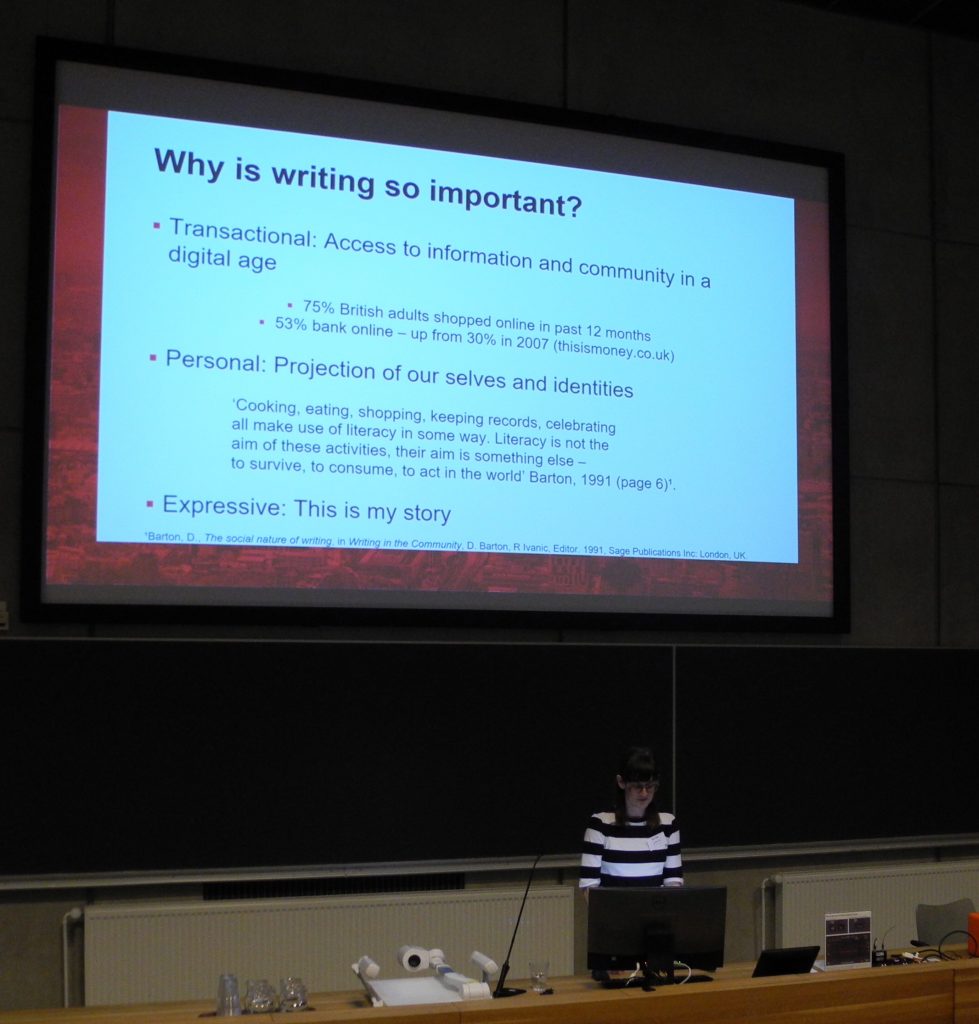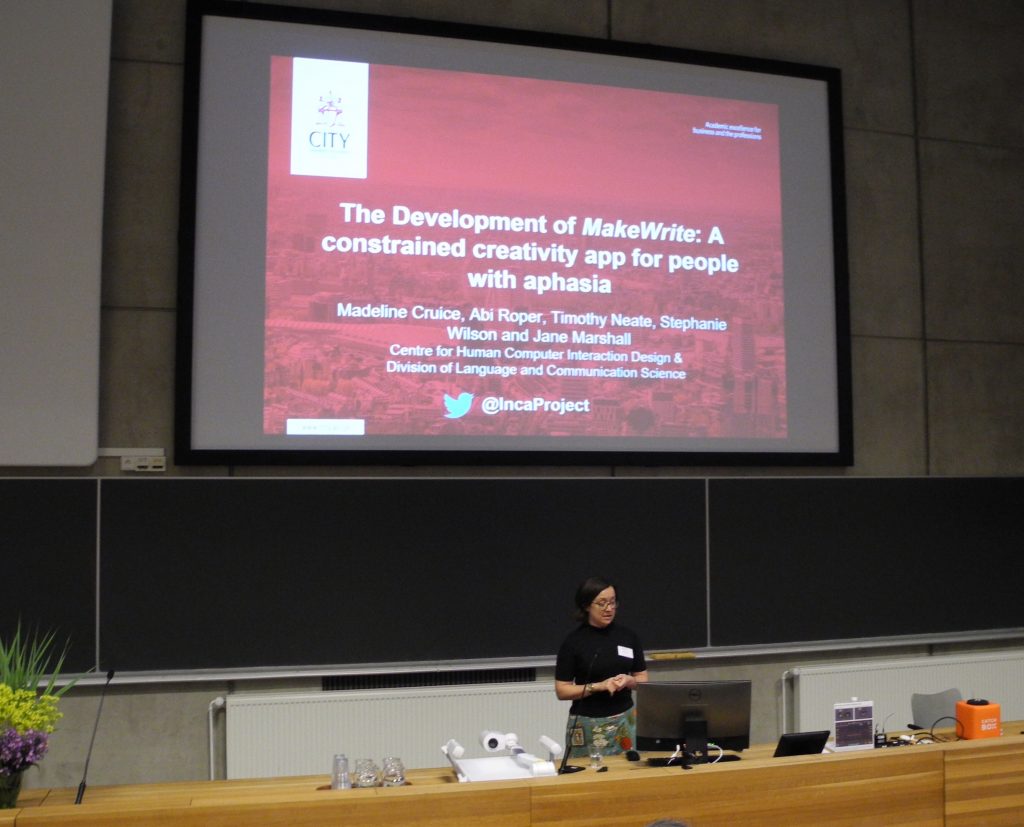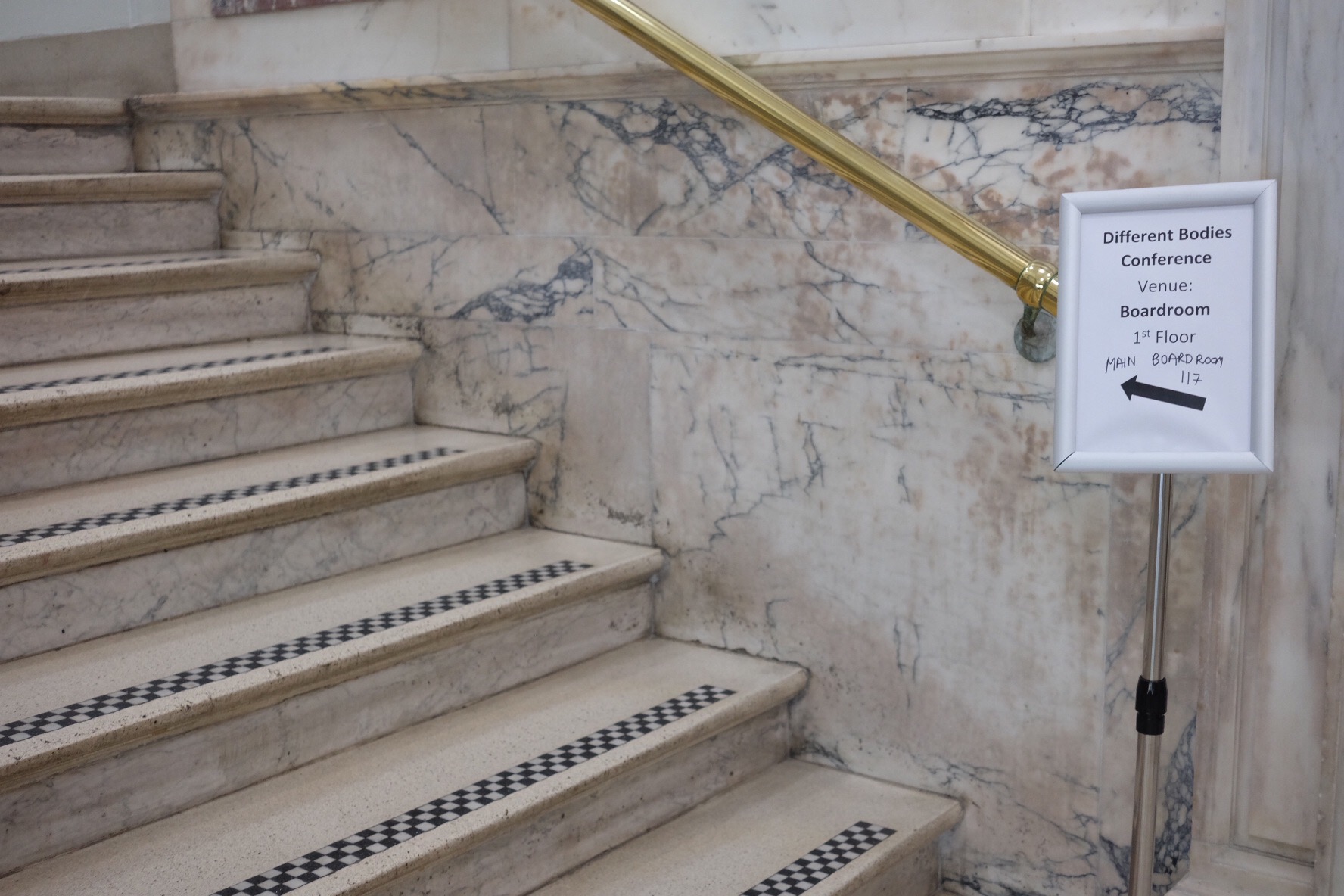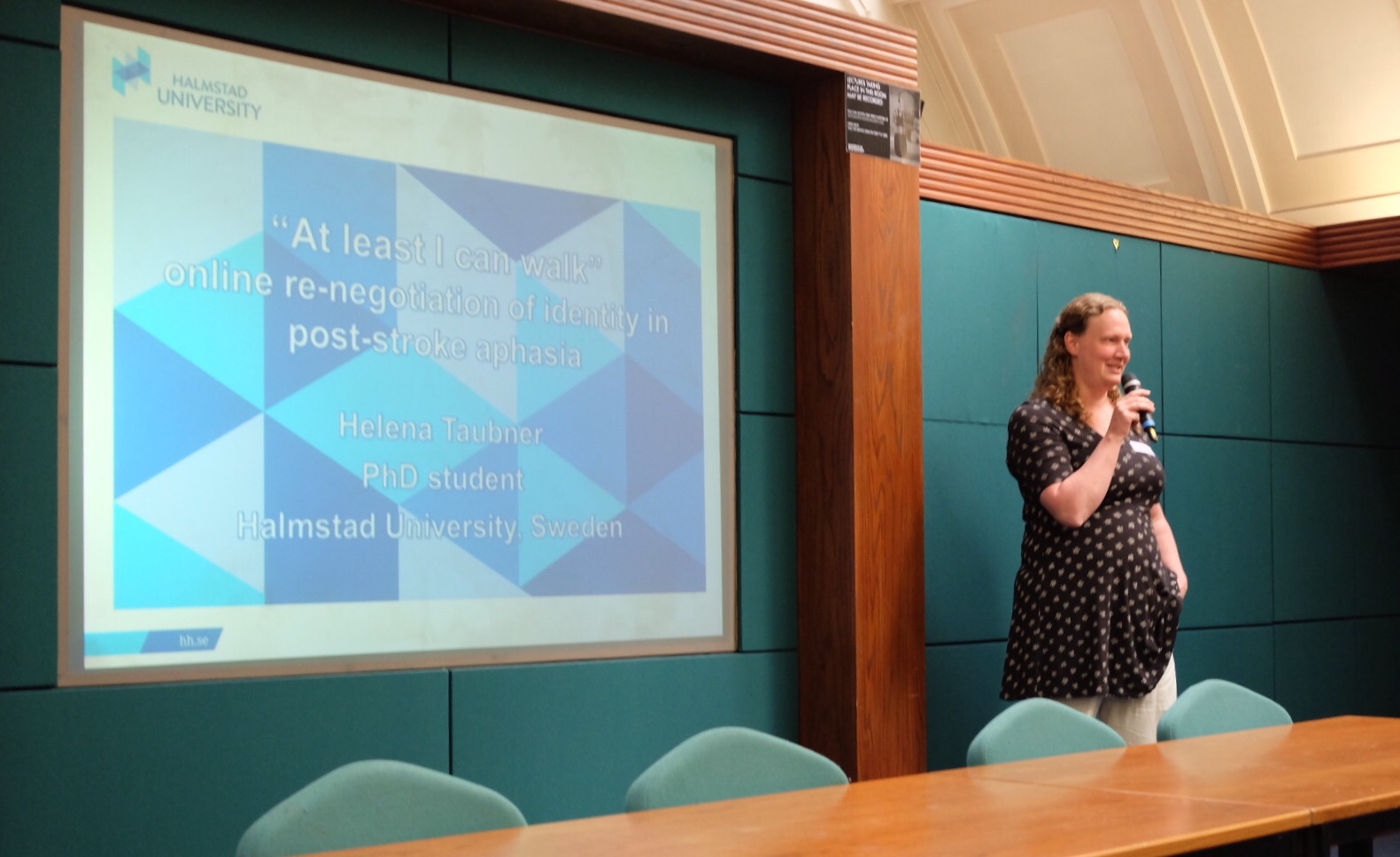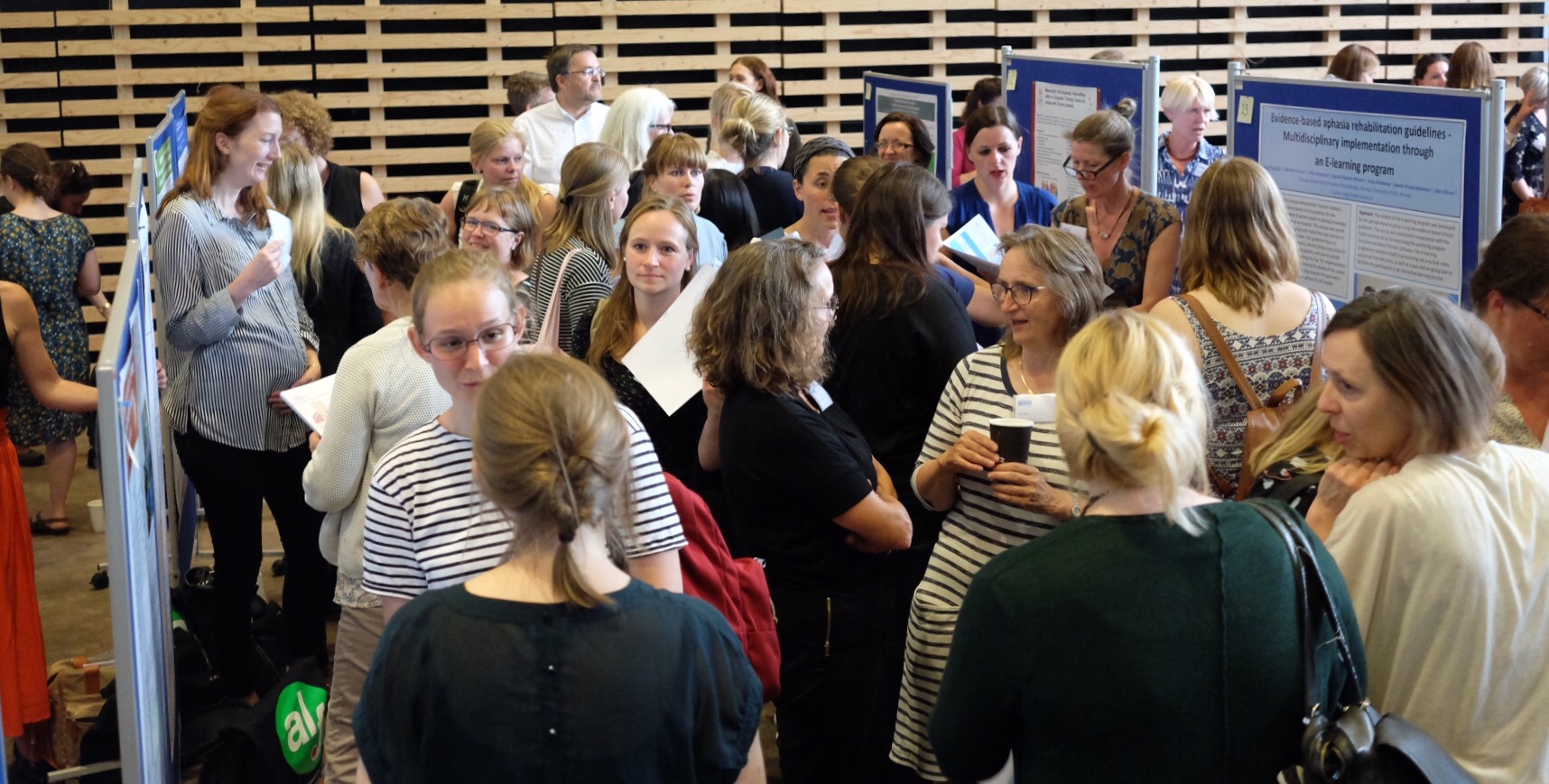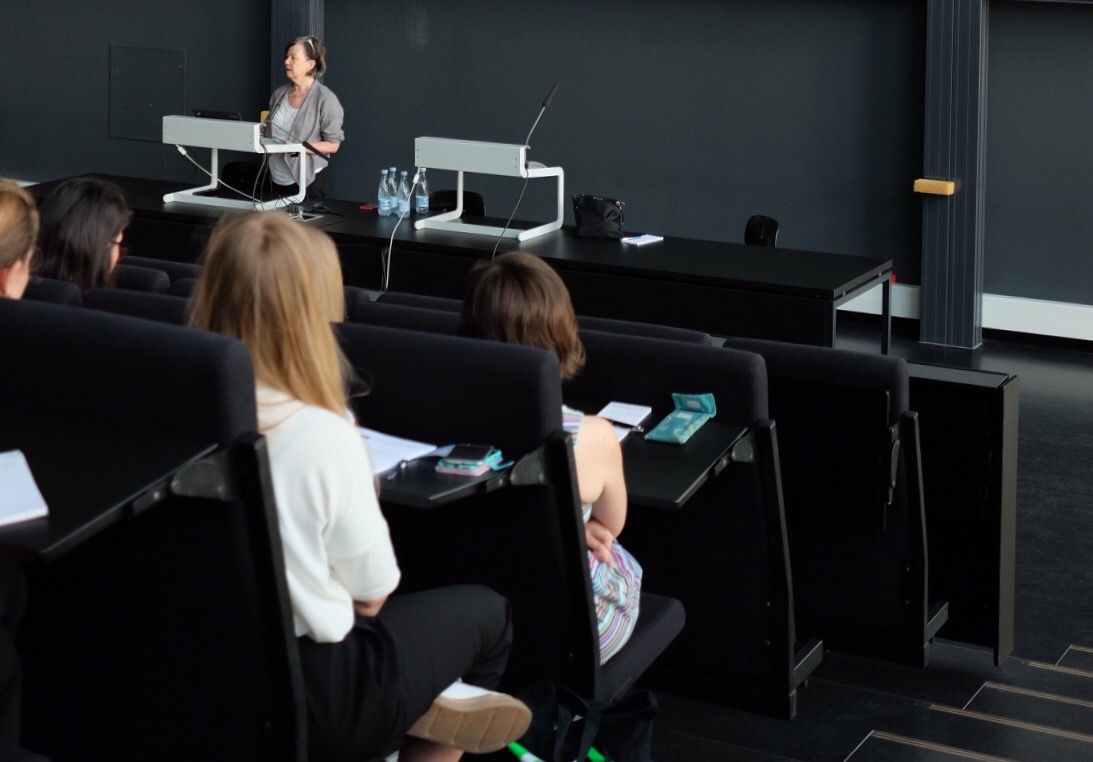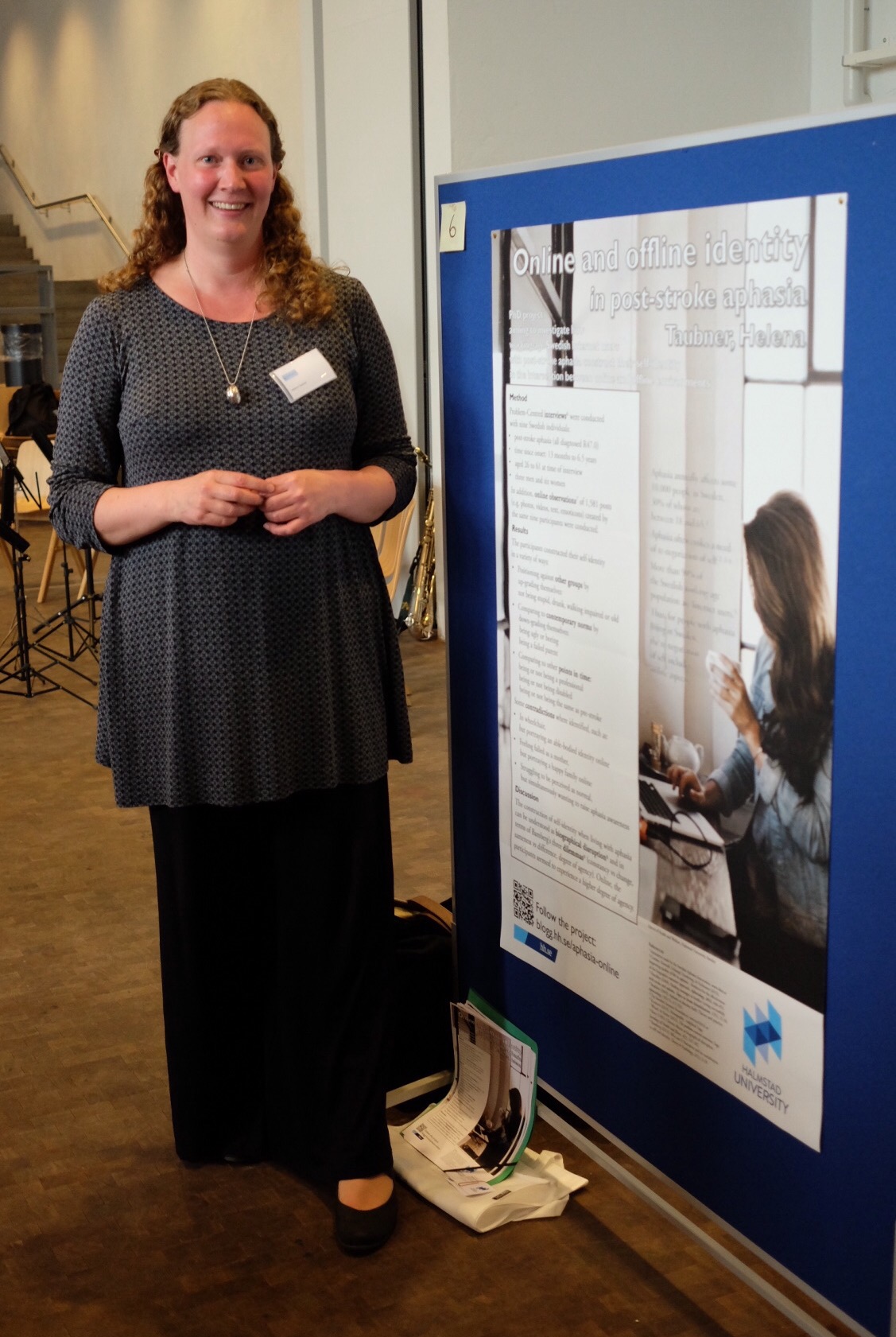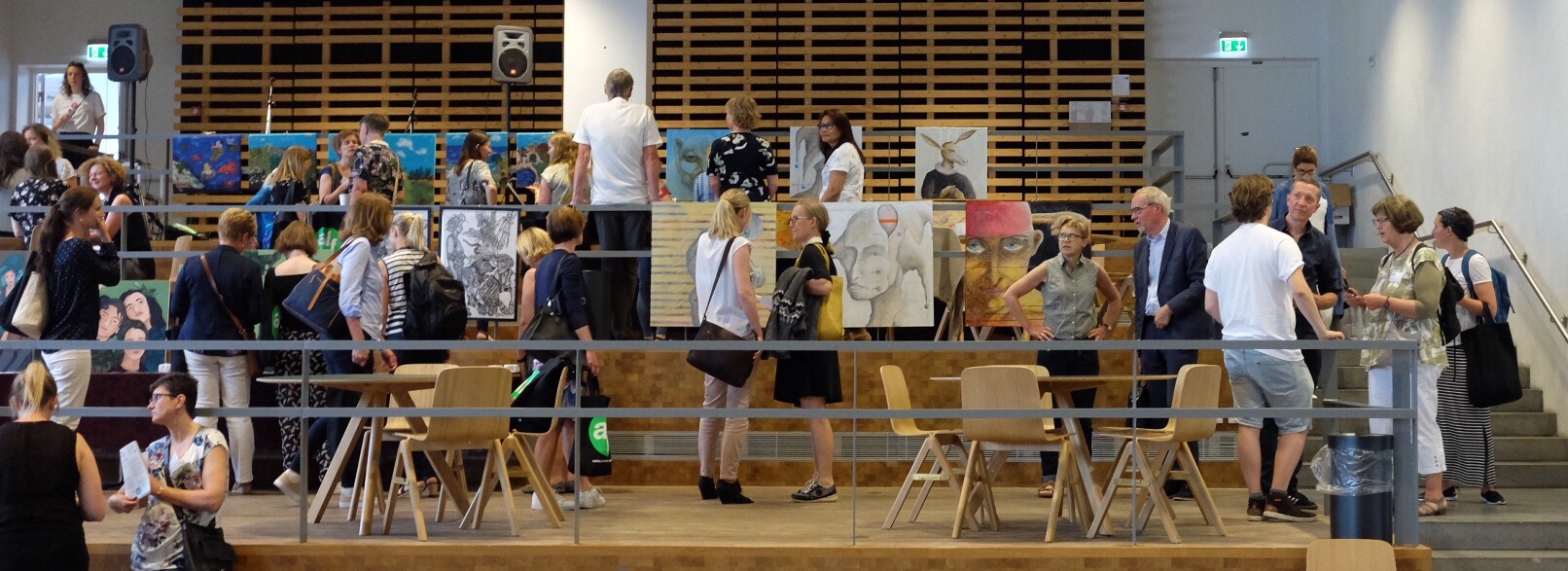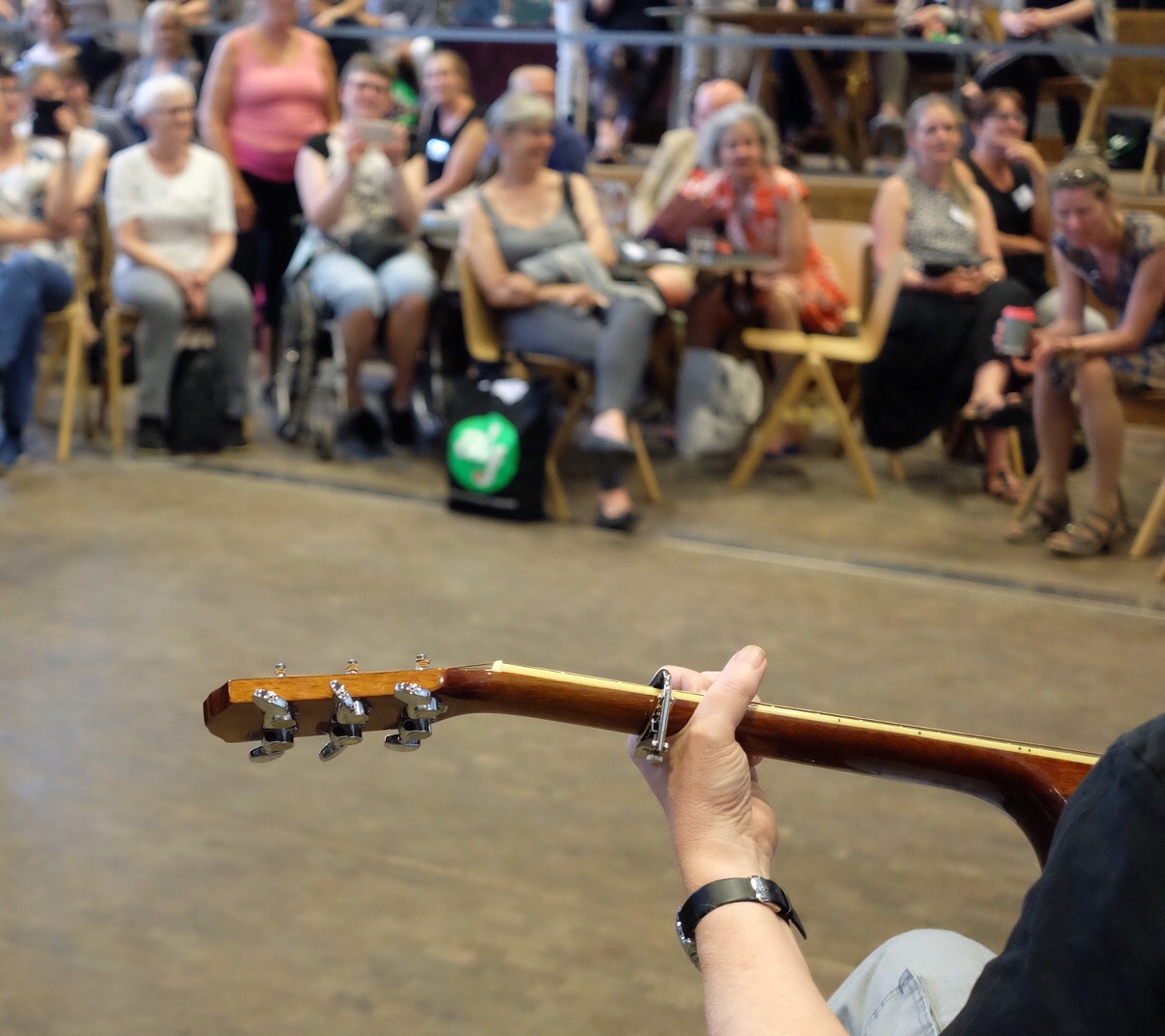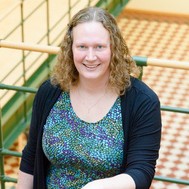Den 10 oktober är det Afasidagen. Tidigare år har jag haft förmånen att få föreläsa i några olika sammanhang i anslutning till den dagen. I år fick jag glädjen att vara inbjuden till Afasiförbundets konferens i Stockholm. Men… på grund av den pågående pandemin blev hela konferensen istället digital, och jag föreläste hemma vid min skärm.
Jag pratade om min avhandling under rubriken ”Att äga berättelsen om sig själv”. Det handlar både om vad som skrivs om att leva med afasi i svenska tidningsartiklar, och om de 21 personer med afasi som ingår i avhandlingen och deras sätt att skapa sina självberättelser.
Föreläsningen spelades in och nu har den – till min stora glädje – textats av Begripsam som ett försök att göra en textning som uppfyller tillgänglighetskraven som W3C har satt upp. Bland annat handlar det om antal tecken på varje rad och hur länge textraderna ligger kvar på skärmen. Läs mer om arbetet med textningen här: https://www.afasi.se/2020/11/17/forelasning-med-helena-taubner/
Här kan du se filmen! (Om texten inte syns direkt, så tryck på CC-knappen och välj svensk textning.)
Om filmen inte startar här, så hittar du den på https://vimeo.com/480233563

